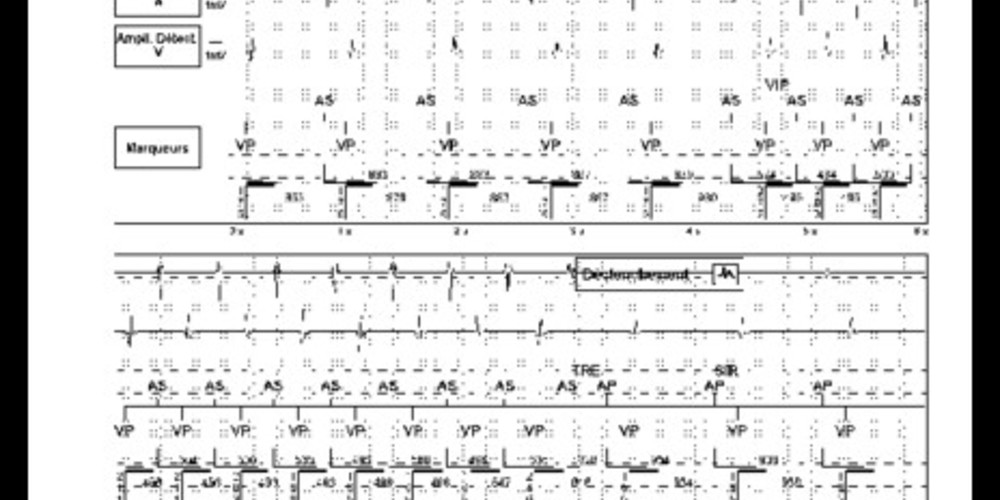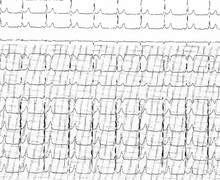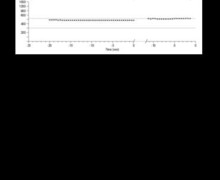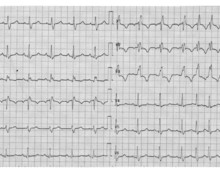VIP algorithm and risk of PMT
Tracing
Manufacturer Abbott
Device PM
Field Pacing Modes
N° 3
Patient
- 72-year-old man
- Assurity MRITM pacemaker (Abbott) for paroxysmal atrioventricular block
- VIP algorithm
- Recording of PMT episodes in the device memory

Graph and trace
- Atrial sensing and ventricular pacing
- VIP: the device extends the AV delay for one cycle (from 175 to 275 ms, VIP programming: 1 cycle, extension 100 ms)
- The prolongation promotes retrograde atrial conduction which is sensed outside the refractory periods (classified as AS) and triggers an AV delay
- PMT
- After 8 VP-AS cycles with stable VP-AS intervals and rate higher than the programmed PMT rate limit (110 beats/minute), suspicion of PMT
- Extension of the AV delay (from 195 to 245 ms) on one cycle
- On the next cycle, prolongation of the AS-AS cycle by approximately 40 ms, which demonstrates that the timing of atrial activity is contingent on the timing of ventricular pacing (in favor of a PMT)
- The next atrial activity does not trigger an AV delay
- Atrial pacing 330 ms after the last AS cycle followed by ventricular pacing
- Termination of the tachycardia confirming the diagnosis of PMT
Comments
- When the VIP is programmed, the search for intrinsic conduction is based on an AV delay hysteresis with an extended AV delay, during 1 to 3 cycles, with a maximum value of 450 ms
- There can be no dropped P waves during this search thus avoiding ventricular pauses that may be symptomatic or, in a few rare patients, favor the occurrence of ventricular arrhythmias
- The search for intrinsic conduction is carried out only for rates below 110 bpm so as to reduce the risk of 2:1 block during exercise in a patient with complete atrioventricular block
- The 2:1 block is dependent on the total atrial refractory period (AV delay + PVARP) which is substantially prolonged when searching for intrinsic conduction (very long AV delay)
- Prolongation of the AV delay can favor the occurrence of retrograde conduction able to trigger a pacemaker-mediated tachycardia
- In patients with impaired anterograde atrioventricular conduction but preserved retrograde atrial conduction, it is advisable not to program the VIP so as not to increase the risk of PMT
Other articles that may be of interest to you






